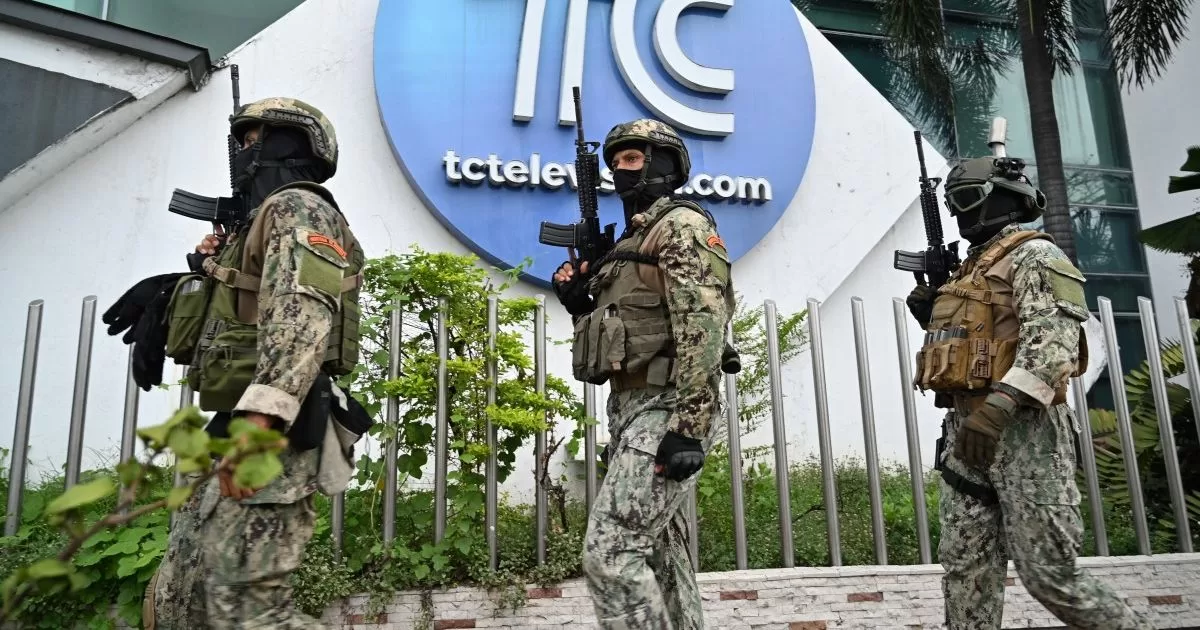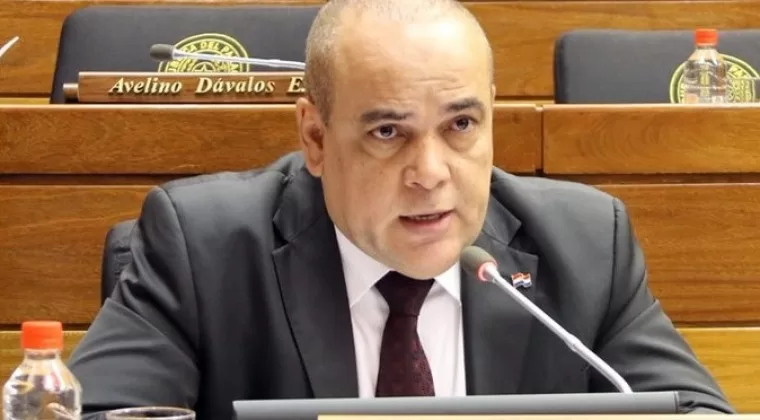The nation, which was considered one of the most peaceful on the continent, in recent years remains subject to criminal gangs, linked to drug trafficking cartels from Colombia and Mexico, which have caused dozens of prison massacres and hitmen. Its crime rate went from five homicides per 100,000 inhabitants in 2017 to 45 in 2023, according to data from the Ecuadorian Organized Crime Observatory.
On January 9, the violence reached its peak when criminal organizations, in response to the state of emergency decreed by President Noboa after the escape of one of the most powerful drug trafficking bosses, They decided to unite against the State and start an offensive which included various prison riots, with the retention of police and prison guides, attacks on citizens, countless terrorist attacks, mainly in Guayaquil (southwest), and the invasion of armed men on a national television channel.
“We are seeing levels of violence by the belligerent sectors with very eschatological, very morbid characteristics. This is not a confrontation between irregular groups and regular groups“This is a confrontation between the motivation for chaos for its own sake and the need to build a rule of law,” he explains to DIARIO LAS AMERICAS the Venezuelan criminologist, residing in Ecuador, Daniel Castro Aniyar.
It indicates that the nation entered a state of “volatility”in which criminal gangs, who reported murders of prisoners in prisons, show some form of “unity” in their actions against the government, with a “very open willingness to put even children at risk and vulnerability.”
“The action of criminal gangs is not to take over a prison, take over a group or make a single move, it is demonstrate their ability to penetrate the territorywhich makes the situation much more volatile,” he adds.
Surprise and terror
Although the leak of Jose Adolfo Macías, alias ‘Phyto’, leader of ‘Los Choneros’, associated with the Sinaloa Cartel, who threatened the murdered candidate Fernando Villavicencio; and of Fabricio Colón Pico, alias ‘Captain Pico’leader of ‘Los Lobos’, linked to the Jalisco New Generation Cartel, set off alarms in the country, this criminal attack took Ecuadorians by surprise.
On Monday night and the first hours of Tuesday there had already been the seizure of some prisons and riots in several areas of the city, however, the terror escalated when, live, the criminals took over the TC Television facilities and forced to broadcast live, amid threats, shouts and blackmail, in an attempt to stop government action.
“It caught us all by surprise because it seemed like a normal day,” he recalls. Anyer Luis Alban21 years old, in conversation with DIARIO LAS AMERICAS. This student of musical and sound arts at the University of the Arts of Guayaquil had to spend the night in the study house, near the Guayaquil mayor’s office, which had received threats of attacks.
Upon leaving, he could find a desolate city, which operated at 30% of its commercial activityaccording to reports from The universe, in the midst of an atmosphere of anxiety, terror and strong tension. “There were few people, I had to walk, looking everywhere, in case something happened,” she mentions.
Caution has been present in the Ecuadorian population, victims of robberies, kidnappings, random murders, attacks with explosives and extortion, called vaccines, with which They charge families a mandatory weekly amount for their “safety”.
“One cannot feel safe, because we do not know if when we leave we are going to return home. “You don’t know what could happen in the streets,” she says. This has prevented him from carrying out, for example, the violin classes that he teaches. “I have to ensure my safety and that of my students because nowhere is safe anymore”he points out.
The hard day of violence and terror that Guayaquil experienced on Tuesday left at least 12 dead, among them, the singer Diego Gallardo Molina and three people who were burned in a vehicle.
In addition, some five terrorists were killed and 329, mostly belonging to the Tiguerones, Los Lobos and Los Choneros gangs, were detained; The rescue of 41 citizens was also achieved and 28 prisoners were recaptured, according to the official balance sheet.
A criminal legacy
After the escalation of violence, Ecuador entered an unprecedented situation, with the presidential decree 111which declares an internal armed conflict and orders the Armed Forces to go out throughout the territory to confront 22 criminal organizations, identified as terrorists.
Lucio Gutiérrez, former president of Ecuador (2003 – 2005) and assemblyman, assures that the current situation is the product of “a policy management in favor of international crime and drug cartels” promoted by the former president, Rafael Correa (2007 – 2017), a fugitive from justice in Belgium.
“He did not renew the agreement so that, from the Ecuadorian base of Manta, the United States, with technology, would help us fight the drug cartels.. Rafael Correa approved the drug consumption table in Ecuador and released more than 2,000 people who were imprisoned for micro-drug trafficking. That is, he had an entire policy in favor of these crime and drug movements in the world,” former President Gutiérrez told DIARIO LAS AMERICAS.
He also denounced that during these years the Correa government reached agreements with criminal groups so that they “operate freely”, which is why at that time there were no armed conflicts like those currently experienced.
“The drug cartels must be fought and obviously there is this reaction, but Nor could we allow the Ecuadorian State to become complicit of these criminal groups,” he noted.
Gutiérrez pointed out that in the country there is already talk of “narcopolitics and drug justice”, due to the number of elected candidates who have been allegedly financed with drug money and the judges who “release criminals paid with drug money,” as revealed with Operation “Metastasis,” which led to the arrest of 31 government officials, including judges, prosecutors, prison guards and police. 16 with preventive detention for crimes related to drug trafficking, in a case that, according to the attorney general, Diana Salazar, reveals the “narcopolitics” that operated in Ecuador.
“The decree of internal armed conflict is a consequence of the unbridled and uncontrollable violence that these criminal groups were developing,” says Gutiérrez, highlighting the unanimous support that the National Assembly has given to Noboa, the Armed Forces and the National Police. in the actions taken to combat criminal gangs.
“We put aside our political and ideological differences, and we unite so that this decree, declaring a state of internal armed conflict, has the best results for the benefit of the peace and tranquility of Ecuadorians,” he emphasizes.
@ebritop22


